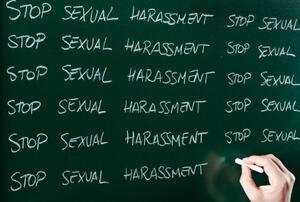On the Power of Words
One of my favorite weekly work tasks? Editing and posting the blog post from Nechama Tamler, a G-dcast volunteer, for the Animated Torahlog (presented by G-dcast, hosted by InterfaithFamily). Her posts tend to include contemporary reaction to the weekly parsha (Torah portion), ranging from poetry and folk music to Jewish scholarly understandings. She always includes thought-provoking questions about what the parasha might mean for us, today, as Jews or partners/family members of Jews in North America. I like her take, her spin. And, if I'm being fully honest, when I'm super busy and crazed outside of work, it might be the only Torah study I do for the week (especially the weeks I decide to daven (pray) at Shaare Sheina (Gates of Sleep) on a Shabbos morning.
Today's post? All about the week's double parshios (Torah portions), Tazria (Leviticus 12:1-13:59) and Metzora (Leviticus 14:1-14:33).
The important thing to remember is that the Torah sometimes gives us something very physical (skin disease) for us to understand in a meta-physical way (as divine punishment for anti-social speech) — in other words, as a metaphor for something real in our contemporary lives. In this day and age of speech that actually hurts and causes real damage, one could actually benefit by thinking about the lessons of hurtful speech, gossip, and other sins that come from plain old talking.
Nechama continues, drawing an example from the less-than-polite members of the US Congress.
My brain, however, went straight to the rash of highly publicized, highly social media-cized, high profile rape cases of late. And there's been too many examples, just in the last months: the Steubenville case, where a girl was raped by members of the high school football team; the Torrington football rape victim who was bullied for accusing her rapists; the University of North Carolina rape victim threatened with being expelled for accusing her rapist; the 10-year-old in India, jailed for trying to report her rape; the list, sadly, could go on.
I'm not saying social media is the problem. But it does increase the suffering of the victims when photos and videos of their attacks are spread near and far. It does increase the suffering of the victims when folks take to social media to victim blame and shame.
If this week's double parshios looks at the power of words to do harm, in an era when most communication was oral and few in the community could write, what would it say of the power of words when most of the 7 billion of us now have access to a cell phone, can quickly send a text, and can forward that text to the dozens, hundreds, or thousands in our contact lists? As Nechama points out,
In the days of the Bible, the warning signs were obvious:
- First, tza'ra'at [the skin disease described in Leviticus, mistakenly translated in the 9th century as leprosy] appeared on the walls of your house.
- Then, if you didn't stop spreading rumors and speaking ill of others, the fungus would appear on your clothes.
- Finally, your own skin began showing scaly areas and sores, and you had to be isolated and go through a whole cleansing ritual before coming back into the camp, kind of like re-joining society after being imprisoned.
Fast forward to now: what warning signs do we have that our gossip is causing harm?
With the ease of gossip in our technologically advanced and fast days, the answer is "too few." Or maybe the answer is that the warning signs come too late, like in the case of Rehtaeh Parsons, who committed suicide after 18 months of being bullied by schoolmates and having her rape case ignored by school officials and police alike. To be clear: I'm not saying we should wait for suicide to see the signs of our ill-saying and ill-doing. But, sadly, in a time when rape culture seems so prevalent, I'm hoping those involved in shame, blame, and smear campaigns will realise what they've done and start to understand the effects of their hateful speech, texts, tweets, and posts when faced with something as harsh as a suicide.
But let's back up a second, because clearly we do not want it to get that far. What would the warning signs look like? Might it look like law officials actually arresting bullies? Might it look like educators, school administrators, and coaches standing up to bullying and shaming, trying to change the culture around rape and hero (athlete) worship? Might it look like parents only giving phones, ipads, computers, and other devices to their kids and teens if they sign a contract, and then enforcing the terms?
I'm not sure what the warning signs are today, but even if they're not overt or obvious, we need to find them — or assume they exist. We need to remind ourselves that our words hold power. Our words can convey the needed empathy, sadness, and understanding (for the victim, not the accused). Our words can be used for good.








I am so so pleased that my torah blog inspired you to write this blog Benjamin. Kol Ha-Kavod. I really appreciate the link you made with lashon ha-rah/verbal abuse and rape. It starts insidiously, maybe with denigrating someone and if the perp isn't stopped, he or she just continues until the consequences really are life and death. Thank you for spinning off of what I wrote to something vitally important to consider.